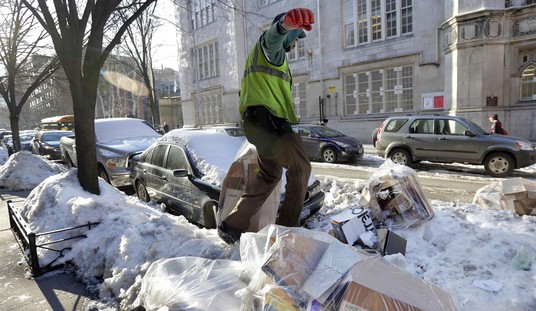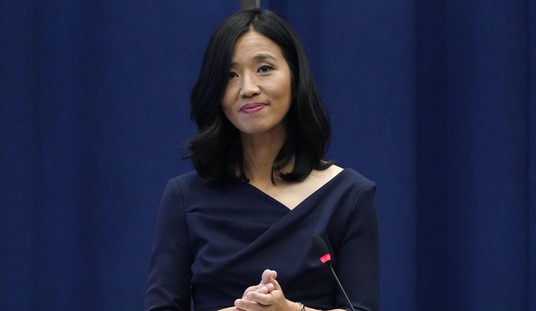Mary Jackson’s misreading of my City Journal article on the campus rape industry is so total as to call for some of the psychoanalyzing that she lays on me. But first, let me try to clear up her confusion.
Jackson says that I am driven by the desire to “condemn” and “criticize” women’s sexual behavior. I have seized on the campus rape industry as an “excuse,” she claims, for venting my disapproval of female promiscuity. Not only am I censorious, I am also in the grips of a sexist double standard: I condemn behavior in women that I condone in men.
These are ludicrous charges. I can assure Ms. Jackson that it is of no concern to me how students, male or female, choose to conduct their sex lives, so long as they don’t put themselves forward as “rape victims” after a sexual encounter that they undertook voluntarily and participated in with apparent consent. I use the terms “sluttish” and “promiscuous” descriptively, to refer to the type of behavior that leads to the following dilemma, assumed by Columbia’s Go Ask Alice health website to be perfectly normal: A girl suspects that her drunken sexual encounter with a guy ended in intercourse. But her connection to him is so tenuous that it would be too “awkward and embarrassing” to actually have a conversation with him the next day to find out exactly what happened. Perhaps Ms. Jackson would be less exercised had I used the term “low-threshold-partnering,” or some such. She is welcome to offer alternative labels.
Fortunately, few students do label themselves as “rape victims” following a drunken hook-up, demonstrating a far better understanding of personal responsibility than the feminist bureaucracy that dominates campus administrations. My critique was not directed at the numerous participants in the hook-up culture who do so without melodrama, but rather at the campus rape industry and its patent hypocrisy. I offered the suggestion that greater sexual restraint would be a sure-fire prophylactic against what the industry calls “rape” as a way of calling the industry’s bluff. If the promoters of the campus “rape epidemic” conceit really believed their propaganda — believed, in other words, the astounding claim that up to one-quarter of female students would be the actual or attempted victims of the second most heinous crime after murder — surely those rape bureaucrats would do everything within their power to protect the potential victims. And the surest way of not getting “raped” is to not involve yourself in a blotto hook-up in the first place. This is not a moral imperative; it is a purely prudential one. As I proposed in a thought experiment to Mary Koss, the researcher who started the campus rape industry, if a real rapist had struck even two times on a campus, it is inconceivable that administrators would not be warning women to stay away from the areas of attack at night, regardless of whether women have a “right” to be in those areas, or whether it would be their fault if they were attacked. Responsible adults would put aside such notions of “right” and “fault” in order to preserve young women from the devastating crime of rape.
Yet when I suggest to campus sexual assault administrators that they could stop the “rape pandemic” overnight if they persuaded girls to exercise more prudence in their mating habits, I inevitably receive responses like the following (quoted verbatim): “I am uncomfortable with the idea of ‘recommending that female students exercise more modesty and restraint’ — this indicates that if they are raped it could be their fault — it is never their fault.” Or: “Yes, modesty would have a certain impact, but who’s responsible?”
Let us hope that administrators refuse to take the most practical action to ending campus rape because they secretly know that what is happening on campuses is not really rape, but something much more ambiguous and much less traumatic than real rape. The alternative is too shocking to contemplate: these self-professed women’s advocates really do believe that a drunken hookup is rape, and yet are withholding from female students advice on the most efficacious way to prevent such a fate simply in order to preserve the feminist establishment’s ability to blame men for systemic violence against women.
Ms. Jackson faults me for allegedly “condemning” female behavior while giving boys a free pass. This charge is irrelevant, since my goal in writing the article was not to “condemn” hook-up behavior, but rather to expose the bad faith of the campus rape industry. But since she insists in reading sexist censoriousness into merely descriptive terms, let me restore the language that she carefully removed from her purported money quote:
So what reality does lie behind the campus rape industry? A booze-fueled hookup culture of one-night, or sometimes just partial-night, stands. Students in the sixties demanded that college administrators stop setting rules for fraternization. … The colleges meekly complied and opened a Pandora’s box of boorish, sluttish behavior that gets cruder each year. Do the boys, riding the testosterone wave, act thuggishly toward the girls? You bet! Do the girls try to match their insensitivity? Indisputably.
Jackson ignores other descriptions — oops, “condemnations” — of male thuggishness throughout my piece. But in any case, a focus on the female contribution to what the campus rape industry calls rape is perfectly appropriate, since it is overwhelmingly females who are deemed or deem themselves the victims. If males cried rape after a seemingly consensual sexual encounter, I or any other reasonable person would also inquire about the behavior that contributed to that outcome. How ludicrous can those charges be? A former campus rape investigator reported to me a typical rape charge: the girl had offered her anus to a fellow student and he ended up in her vagina instead. He promptly apologized for his mistake and corrected it, but according to the girl, she had been raped nevertheless. She accused the rape investigator of dereliction of duty for not acknowledging her victim status. Such complaints were typical. When men start to make them, they will be no less open to analysis.
Jackson’s confusion about scare quotes and irony is beyond redemption.
The vast majority of Pajamas Media readers understood my arguments without strain, to judge by their response to Jackson’s critique. Why didn’t Jackson herself? I can only speculate. Perhaps her tortured effort to find a sexist double standard in my piece grows out of the sad dilemma of the modern feminist. Raised on the idea that victimhood is a source of empowerment, today’s crusading feminist is in rather a bind. Not only is she not discriminated against, she is discriminated in favor of. Every elite institution in the country is frantically scouring the horizon for women to put in the corporate boardroom, among law partnerships, on the masthead of editorial boards, on the pages of magazines and newspapers, on television talk shows, and on university faculties, inter alia. This situation is hard to square with the claim of oppressed status. And so it becomes imperative to fabricate pseudo-bias where none exists. Perhaps Jackson has developed the exquisitely-tuned sexism sensor cultivated in the academy; I don’t know.
For the record, my overriding goal in writing “The Campus Rape Myth” was to illustrate a larger point. The campus rape and sex promotion industries are just symptoms of the university’s tragic flight from its one true purpose: cultivating in students a passion for knowledge and beauty.
Heather Mac Donald is a fellow at the Manhattan Institute.









Join the conversation as a VIP Member